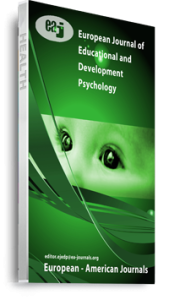The purpose of this quantitative descriptive survey was to examine the influence of gender on self-regulated learning (SRL) on students’ academic engagement (SAE) in Ghana. Stratified and systematic sampling techniques were employed to select a sample of 315 senior high school students in the Berekum Municipal in the Bono Region of Ghana for the study. The study adapted questionnaires on self-regulated learning (Chen & Lin, 2018; α=.91), and students’ engagement (Maroco et al, 2016; α=.81) to collect data from the students. Data was analyzed descriptively (frequencies, means, and standard deviations) and inferentially (regression, MANOVA, and Hayes Process). The study revealed that students were moderately self-regulated and moderately academically engaged. Again, Male students were found to have more self-regulated learning capacities than their female counterparts but both sexes could similarly engage in their academic pursuits. It was recommended that management in the Berekum Municipality should organize educative and job oriented – academic and career guidance workshops, seminars, and programmes to help develop higher levels of academic engagement in students. Also, School authorities should intermittently organize educative programmes that will tackle the academic, social life, financial and the psychological state of the female students.
Citation: Eric Appiah-Kubi, Mark Owusu Amponsah, Samuel Nti-Adarkwah and Asoma Collins (2022) On Self-Regulated Learning and Academic Engagement Among Senior High School Students in Ghana, European Journal of Educational and Development Psychology, Vol.10, No.2, pp.28-41
Keywords: Gender, Ghana, Self-Regulated Learning, Senior High School, academic engagement

